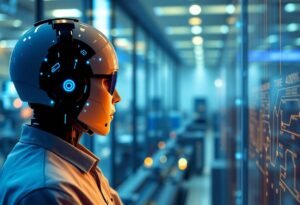The future of the Internet of Things (IoT) in smart city development is a topic of paramount significance within the field of innovation. As cities evolve and grow, the integration of IoT technologies offers unprecedented opportunities for enhancing urban living. The transformation towards smarter cities can revolutionize infrastructure, transportation, and daily life, making it more efficient and sustainable.
Enhancing Urban Infrastructure with IoT
The implementation of IoT solutions in urban infrastructure presents transformative possibilities. Smart sensors embedded in roads, bridges, and public buildings can provide real-time data on their conditions, allowing for proactive maintenance and reducing the risk of failures. Such technology not only enhances safety but also leads to cost savings in long-term upkeep. Furthermore, IoT can streamline energy usage in public lighting systems, adapting to the needs based on real-time foot traffic data, thereby conserving energy and reducing waste.
Revolutionizing Transportation Systems
IoT is set to revolutionize urban transportation by facilitating the development of smart traffic management systems. By utilizing connected devices and real-time analytics, cities can manage traffic flows more efficiently, reducing congestion and improving air quality. Smart car systems can communicate with traffic signals and adjust routes dynamically based on real-time conditions. Moreover, IoT-enabled public transport systems can provide passengers with accurate arrival times, enhancing the overall public transportation experience.
Transforming Public Safety Approaches
The integration of IoT technologies into public safety is crucial for modern urban development. Surveillance systems equipped with machine learning algorithms can analyze video feeds in real-time, identifying unusual behavior and alerting authorities faster than traditional methods. Additionally, connected emergency services can improve response times by providing real-time data about incidents, enabling first responders to arrive better prepared. The enhancement of public safety can create a more secure and trustful environment for residents.
Boosting Environmental Sustainability
Smart cities powered by IoT have the potential to greatly enhance environmental sustainability. Smart waste management systems utilize sensors to monitor waste levels and optimize collection routes, reducing fuel consumption and minimizing the carbon footprint. Furthermore, IoT can assist in monitoring air and water quality, allowing cities to respond swiftly to pollution and health risks. This proactive approach fosters a cleaner, healthier environment for residents.
Empowering Citizen Engagement
In addition to improving operational efficiencies, IoT technologies promote enhanced citizen engagement. Mobile platforms can provide citizens with access to real-time data and services, empowering them to engage with local governance actively. For example, through dedicated apps, residents can report issues such as potholes or inefficiencies in public transport. This direct line of communication not only enhances satisfaction but also fosters community involvement in urban management.
Driving Economic Growth through Innovation
The proliferation of IoT technologies within smart cities can drive substantial economic growth. Innovators and entrepreneurs have new avenues for technology development and implementation in urban settings—leading to job creation and enhanced economic activity. Investments in IoT infrastructure can stimulate local economies, inviting businesses that leverage technology to improve efficiency and service delivery.
Disclaimer: This article is for informational purposes only. The viewpoints and opinions expressed herein are those of the authors and do not necessarily reflect the views of any organizations mentioned.





















